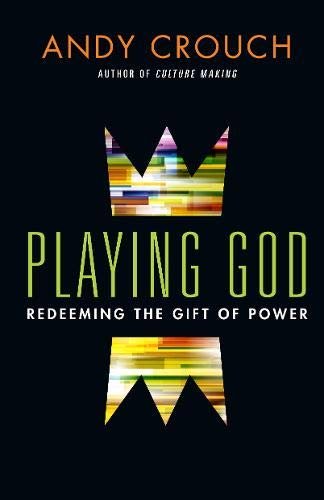Benevolent and Malevolent Gods
My proper review of Playing God: Redeeming the Gift of Power by Andy Crouch is coming in a future issue of PRISM magazine, but in the meantime I thought I’d share some thoughts on a couple of his ideas that have really stuck with me since reading the book, which is excellent, by the way.
One of the themes from the book that Andy touched on when he spoke at our Common Good PHX conference this spring was the connection between idolatry and injustice, and how both are the result of “playing God.” I’m still chewing on this idea, and Jamie Smith’s review in Comment offers even more food for thought.
Crouch’s ideas on this were crystalized after he spent some time in India with Jayakumar Christian, a hero of mine. “The poor are poor,” Jayakumar said, “because someone else is trying to play God in their lives.” Often this god playing takes sinister, downright evil forms. Brothel owners and slave holders come to mind. But other times, god playing happens under the guise of benevolence.
Indeed, as Crouch writes so convincingly, whether we know it or not, many of us bear some of the telltale marks of divinity, however imperfectly we steward those powers. Do-gooders routinely travel rapidly from place to place, an option inconceivable to billions of people (this is a simulation of omnipresence). We swoop in and observe others in their vulnerability, capturing every moment for posterity on Instagram or YouTube, and we leave having never disclosed much of anything about ourselves (a simulation of omniscience). And to top it all off, our money and our technology enable us to accomplish quickly and easily things the materially poor can’t reasonably envision doing, ever (a simulation of omnipotence).
Crouch continues:
All this god playing can take place with the best of intentions, with every hope of helping and with real “results” at the end: wells dug, structures built, children immunized, perpetrators arrested. And the materially poor may well be grateful for the concrete assistance provided by benevolent god players, and glad to be out from under the thumb of malevolent god players. But even at its very best, such god playing does nothing to alter, let alone transform, the most basic reality of poverty, which is the presence of irresistibly powerful god substitutes in the life of the poor. Whether those god substitutes are malevolent or benevolent makes less difference than you might suppose… Benevolent god playing may remedy the most obvious symptoms of injustice, but it leaves the underlying disease untreated.
If true, this has particular relevance for those of us, whether through our daily work or through our financial support, are involved with organizations committed to relief and development among the world’s poor.
I’m grateful for careful thinkers like Andy who put into layman’s terms what community development and human rights “experts” have been grappling with for decades and more. This stuff is complex, and the stakes are high. So this conversation about power—and particularly the role it plays in poverty and poverty alleviation—is a crucial one.
